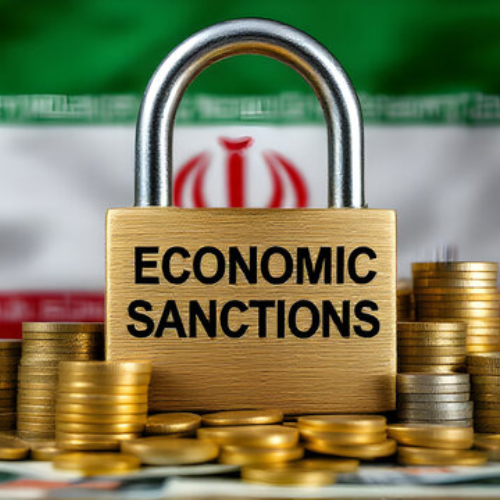Every Friday, many Iranians wake up before sunrise to make a difficult journey. They travel from Iran to Iraq through the Chalamja border crossing. Their destination? The busy markets of Basra, a city in southern Iraq.
These Iranians are not tourists or travelers. They are vendors—ordinary people bringing everyday items like cooking oil, eggs, chicken, rice, and even soap to sell. Most of them come from nearby provinces in Iran, like Khuzestan. Some are farmers carrying fresh produce such as okra and dates. Others bring homemade dairy products, including a creamy breakfast item that Iraqis love.
Why do they do this? The reason is simple: in Iran, it’s very hard to earn money. Due to heavy sanctions placed by Western countries, especially the United States, Iran’s economy has taken a big hit. The Iranian rial, their currency, has lost a lot of its value. This means that things cost much more, but people don’t earn enough to keep up with the rising prices.
As a result, people can’t sell their goods in Iran. They don’t have customers who can afford to buy. The vendors risk their products going bad and losing money. So, instead of wasting their goods, they carry them into Iraq where the Iraqi dinar has more value. There, they can sell items at lower prices and still make a decent profit. Some sellers make $30 to $50 in a single day—more than they could in an entire week back home.
Survival, Not Business
Most of these vendors are not business owners in the usual sense. They’re people trying to survive—mothers, elderly men, teenagers, and young adults. Many of them used to work regular jobs in Iran or tried selling goods locally, but the economy became too harsh.
Some have now rented small shops in Basra. Others still sell from roadside stalls or on plastic crates in open-air markets. They work long hours, often sleeping beside their goods to protect them and save money. The journey is not easy. At the border, many have reported being mistreated by security officers. They are sometimes kept waiting for hours or insulted for being there. Still, they keep coming back, because the money they make in Iraq helps feed their families.
Some women who started this work only months ago say it’s difficult, but they are able to bring home four times what they used to earn in Iran. That money goes a long way. When they exchange Iraqi dinars back into rials, it seems like a small fortune. It can last them almost a week, helping them buy essentials like food, medicine, and school supplies for their kids.
Russia’s Powerful MiG-41 Could Outclass US F-35 Despite Global Sanctions
The goods they sell are often priced cheaper than local Iraqi products. This has made them popular among shoppers. Items like geymar—a thick cream eaten for breakfast with honey—are said to be better and more affordable when bought from the Iranian vendors.
Friction at the Market
But not everyone is happy about this growing trade. Some Iraqi shopkeepers feel that the Iranians are taking away their customers. Local vendors complain that they can’t match the low prices offered by the Iranian sellers. This has created tension in the markets.
At times, Iraqi security forces are ordered to remove the Iranian vendors. But these actions don’t stop the trade. The vendors always return. For them, selling in Iraq is not a choice—it’s a necessity.
Experts say that this kind of informal cross-border trade has been growing for years. It’s a direct result of Iran’s declining economy. When people can’t find work, and their money keeps losing value, they look for other ways to survive. Basra’s markets have become a key lifeline for many struggling families just across the border.
US Slams Devastating Sanctions on China, UAE for Fueling Iran’s War Machines
Despite the long travel, difficult treatment, and market pressure, these Iranian sellers continue to cross into Iraq every week. Their presence is now a regular part of the Friday market scene in Basra—an example of how ordinary people adapt in the face of economic hardship.


